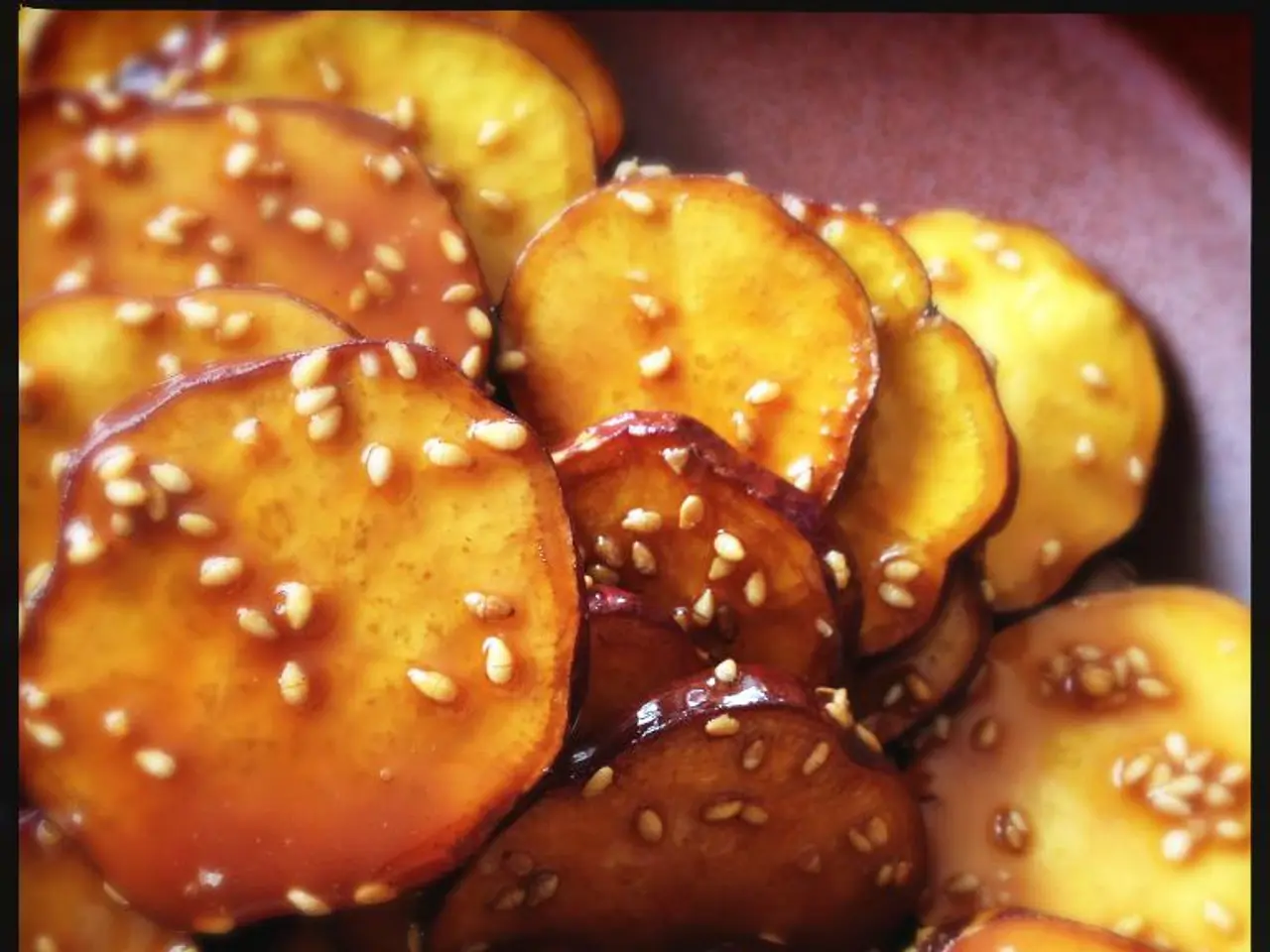Exploration of the Symbolic Significance in Common Juneteenth Dishes, Ranging from Barbecued Meats to Hibiscus Infusions
Top off your Juneteenth celebration with some delicious and meaningful dishes that significantly contribute to the festivities' cultural and symbolic importance. The holiday, originally marking the day enslaved African Americans in Texas were informed of their freedom on June 19, 1865, celebrates freedom, resilience, and shared heritage.
At the heart of Juneteenth is bonding amongst family, friends, and the community over mouth-watering cuisines. Tommie Boudreaux, a member of the African American Heritage Committee of the Galveston Historical Foundation, emphasizes the significance of food during this holiday: "When I think of [Juneteenth], I think about family... Good food is something different than going to a restaurant to order a steak. It's the comfort you get from sitting at the dining table and eating with your family."
The Southern states' staples shine their brightest on Juneteenth. Barbecues, in particular, demonstrate fellowship as family and friends gather together, generating a sense of unity, tradition, and commemoration of life's milestones- all set to the rhythm of soulful music and rich aromas.
Delicacies abound, like tender pork ribs, roasted chicken, and mouth-watering hot links, all bathed in smoky barbeque sauces. According to Boudreaux, these traditionally hearty meals date back to the days when enslaved Africans were given animal scraps by their enslavers and crafted beautiful flavors to share with their loved ones.
Moreover, the color red is prevalent in Juneteenth food spreads, symbolizing the bloodshed, resilience, and sacrifices of ancestors while also carrying high spiritual significance among the Yoruba people of Nigeria, Benin, and Togo as well as the Kongo of Angola, Democratic Republic of Congo, and Gabon from where many enslaved Africans originated.
Red foods and beverages, such as red velvet cake, watermelon, and Juneteenth punch, often appear on tables as a reminder of history and a festive way to honor ancestors' sacrifices. Watermelon, in particular, is well-associated with the holiday, symbolizing the newly-found freedom of Black farmers who grew and sold this crop as a way to obtain economic self-efficacy in their new landscapes.
Other traditional dishes, like collard greens, black-eyed peas, and cornbread, are also popular, symbolizing prosperity, wealth, and hope for a shining future. Hibiscus tea, native to West Africa, and seasonal fruits like strawberries round out the food offerings, adding a refreshing touch to the festivities.
Back in Galveston, Texas, where Juneteenth originated, they celebrate in unique ways, like with red cream soda, a celebrated drink deeply intertwined with the holiday's history. Placing emphasis on local flavor, this distinctive tradition brilliantly blends history and joy into each celebratory sip.
In the heart of Juneteenth celebrations, food plays a vital role, reflecting shared heritage and bonding the community. As stated by Tommie Boudreaux, savory dishes like pork ribs, roasted chicken, and hot links, steeped in BBQ sauces, have roots tracing back to enslaved African Americans who creatively flavored meager offerings from their enslavers.
Red foods and drinks, such as red velvet cake, watermelon, and Juneteenth punch, are not only delicious but also symbolic, representing the spirit of resilience and the sacrifices of ancestors, particularly among Yoruba and Kongo people.
Travel enthusiasts seeking cultural immersion during Juneteenth can discover the vibrant food-and-drink habits that have developed as a significant part of the holiday's history. Back in Galveston, Texas, local traditions, like enjoying red cream soda, provide a fascinating taste of the holiday's origins, combining history and joy in each sip.





